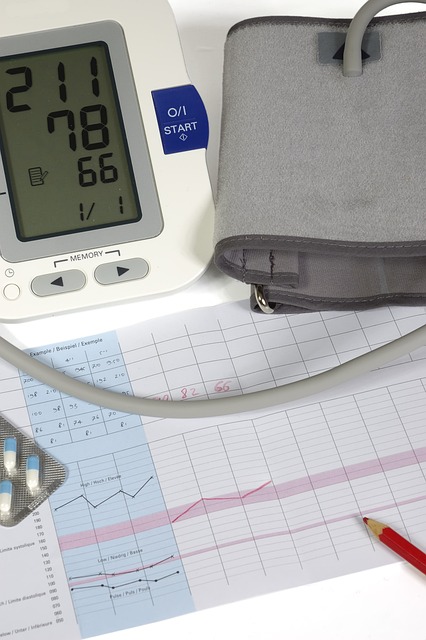The Advanced Liver Blood Test (ALBT) UK is a vital screening tool that goes beyond basic cholesterol levels, assessing enzymes, proteins, and other markers to evaluate liver health. By identifying high cholesterol and liver damage early, this comprehensive test empowers healthcare professionals to make informed decisions, leading to improved patient outcomes and preventing severe conditions like atherosclerosis and cardiovascular diseases. Optimally, total cholesterol should be below 200 mg/dL, with LDL ('bad' cholesterol) under 100 mg/dL for ideal health.
Keep an eye on your cholesterol levels with simple blood tests. This article explores the importance of understanding cholesterol and its impact on health, delving into the role of advanced liver blood tests in UK healthcare. Learn how these tests provide crucial insights and discover tips for interpreting your results effectively. Stay informed to make proactive decisions about your well-being, especially with the comprehensive Advanced Liver Blood Test UK offers.
- Understanding Cholesterol and its Impact on Health
- The Role of Advanced Liver Blood Tests in UK Healthcare
- How to Interpret Your Cholesterol Results
Understanding Cholesterol and its Impact on Health
Cholesterol is a waxy substance found in every cell in our bodies, playing a crucial role in maintaining overall health. It aids in building cell membranes and producing hormones. However, high cholesterol levels, particularly LDL (low-density lipoprotein) or ‘bad’ cholesterol, can lead to serious health issues. This is because excess cholesterol tends to accumulate in the walls of arteries, hardening them and narrowing their passageways—a condition known as atherosclerosis. Over time, this buildup can restrict blood flow, increasing the risk of heart disease, strokes, and other cardiovascular problems.
In the UK, an Advanced Liver Blood Test (ALBT) is a comprehensive screening tool that assesses various liver enzymes and markers, including cholesterol levels. It provides valuable insights into a person’s overall cardiovascular health. The ALBT can help identify high cholesterol early on, allowing individuals to make lifestyle changes or consult healthcare professionals for appropriate treatment. This proactive approach to managing cholesterol levels is essential in reducing the likelihood of developing serious health conditions associated with elevated cholesterol.
The Role of Advanced Liver Blood Tests in UK Healthcare
In the UK healthcare system, advanced liver blood tests play a pivotal role in diagnosing and managing liver-related conditions. These comprehensive assessments go beyond basic cholesterol levels, providing a deeper understanding of liver health. The Advanced Liver Blood Test UK is a multifaceted analysis that includes measuring various enzymes, proteins, and other markers specific to the liver. This test is crucial for identifying early signs of liver damage, inflammation, or conditions like fatty liver disease, hepatitis, or cirrhosis.
Healthcare professionals use these advanced tests to monitor patients at risk, make informed decisions about treatment, and track the effectiveness of interventions aimed at improving liver function. By detecting abnormalities early, medical experts can initiate timely interventions, potentially preventing severe complications and enhancing patient outcomes.
How to Interpret Your Cholesterol Results
Cholesterol results are typically presented as measurements in milligrams per deciliter (mg/dL). The optimal range for total cholesterol is below 200 mg/dL. A reading between 200-239 mg/dL indicates borderline high levels, while anything above 240 mg/dL is considered high. LDL (low-density lipoprotein) cholesterol, often referred to as ‘bad’ cholesterol, should be kept below 100 mg/dL for optimal health. Levels between 100-129 mg/dL are acceptable, but a reading of 130 mg/dL or higher warrants discussion with your healthcare provider.
An advanced Liver Blood Test UK (LBT) may reveal more detailed information about your cholesterol profile and overall liver health. This test goes beyond basic cholesterol measurements by assessing enzymes like ALT and AST, which can indicate liver damage or inflammation. Additionally, it may include measurements of other fats in the blood, such as triglycerides, providing a comprehensive view of cardiovascular risk factors. Interpretations should be made with a healthcare professional’s guidance, who can tailor recommendations based on your individual results and overall health status.
Cholesterol management is a vital aspect of maintaining overall health, and simple blood tests like Advanced Liver Blood Tests in the UK provide an accessible way to monitor these levels. By understanding your cholesterol results, you can make informed decisions about your lifestyle and diet, ultimately reducing risks associated with high cholesterol. Remember, early detection through regular testing is key to keeping your cardiovascular system healthy.
